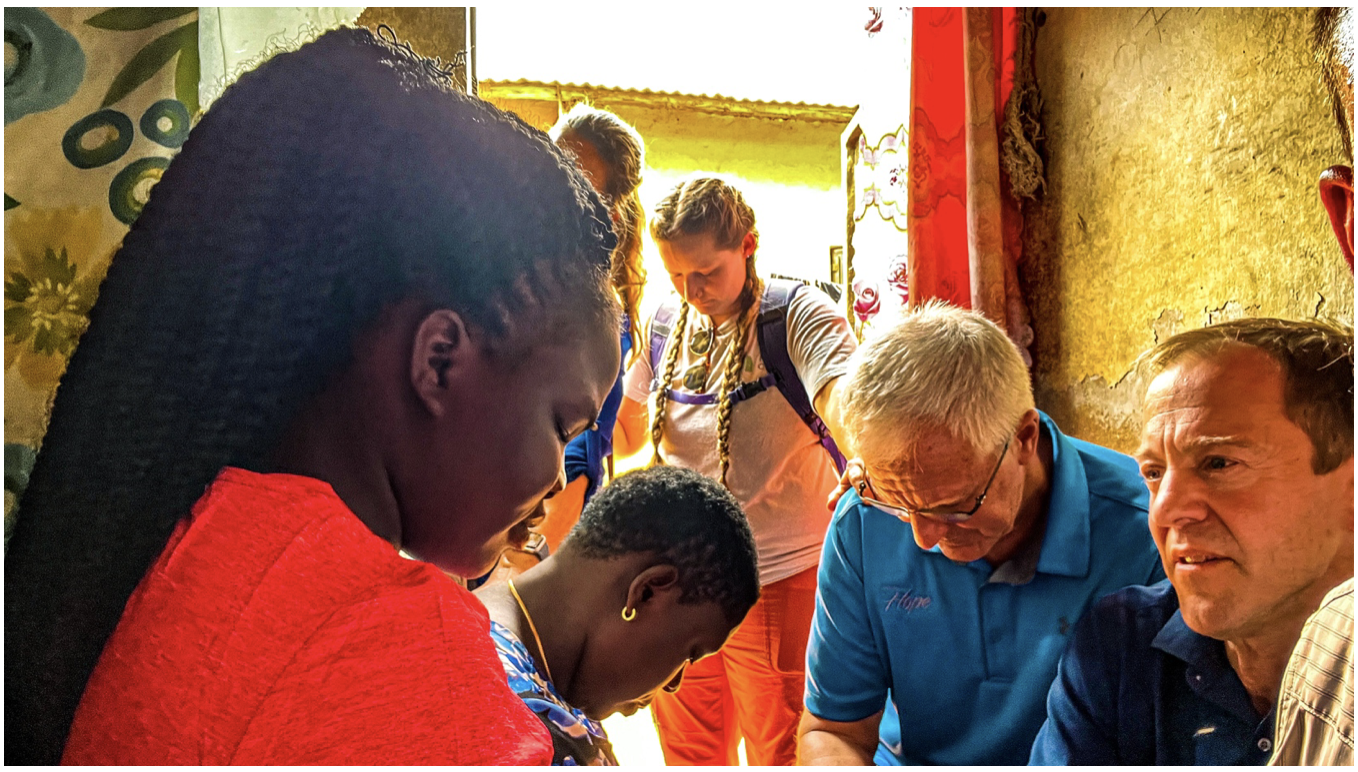Thy Will, Not Mine
The Story of Mabel Francis
Some of our book club selections are hard to read because they were written in an era when long descriptive sentences were used, or the history of that time and culture are obscure to us as modern readers. Sometimes, the books are hard because the content is so personally convicting.
The story of Mabel Francis is an easy read and an encouragement and challenge to modern missions. Do you ever think things like, “I couldn’t go there; it is too hard” [or too far, or unsafe, or support raising is too much]? Have you ever disqualified yourself because you are single and doubt you would get married if you went to the field? Or you are married and have or want to have a family, but want to be safe and protected?
Have you ever been so lonely or so rejected by the nationals that you gave up? Or had such differences with your sending agency that you broke with them or left the field?
Mabel Francis is a model of faith, courage, and perseverance. Born in New England in 1880 to godly parents, she remembered her mother praying for and crying over the lost of the world. Even as a little girl, she knew that one day, she would be a missionary.
At 14, Mabel’s faith became real when she experienced the indwelling Spirit of God. Knowing her own sinfulness, she was drawn to the freedom and victory of the “holiness people” and experienced God’s miraculous work throughout her life.
She became a teacher at 17 and traveled as an evangelist around New England, bringing faith and revival. When she was 19, she had a vision of the islands of Japan and the Japanese people and knew this as the call of God.
At that time, single females were not accepted to serve as missionaries. Mabel wrote to the Christian and Missionary Alliance (C&MA) founder, A. B. Simpson. Because of her faithful ministry and training history, she was eventually permitted to sail to Japan in 1909. She was 29.
God taught her to depend entirely on Him for all her needs. Mabel developed a lifelong habit of listening for His voice. She left for Japan with her kit of 3 dresses (of which only two were culturally appropriate), a fork, knife, and spoon, and a half pound of cocoa. She moved frequently, lived humbly, and slowly overcame the fear and rejection of her as a foreigner.
By 1914 and the start of WWI, Japan was the most powerful country in East Asia. When the Great Depression struck, C&MA decided to withdraw their workers from Japan. Mabel had been in Japan for 20 years and was given an ultimatum to return stateside and be reassigned. She agonized over what she should do. What would happen if she left the mission? How would she be supported? What if everyone back home forgot her? Then she heard God’s voice: “Would you fear to stay here and just trust Me, even if the board does withdraw?” She knew instant peace and joy as she responded in faith, knowing God would not forsake her.
Mabel Francis served in Japan for 57 years, returning Stateside in 1965 when she was 85. She lived through WWII when she was suspected as a spy, put under house arrest, and interned in a camp. Over the long years, she ministered to the sorrows of the Japanese—fires, floods, disease, the earthquake of 1923, the humiliation of loss in WWII, and the carnage and destruction of the atomic bomb. After the war, she pled for more workers to be sent because the people were unusually open to the gospel, and many were being saved. It was a great disappointment to her that the U.S. did not respond to this open door of ministry.
After WWII ended, Mabel (with her widowed sister, who had come to Japan in 1924 and stayed through the war) planted churches and started a Bible school, grade schools, orphanages, and medical clinics. On May 7, 1962, the Emperor awarded Mabel honorary citizenship with the highest honor given to a foreigner, the 5th Order of the Sacred Treasure. He acknowledged her care of the Japanese people in their greatest need and how she introduced God and His love to them.
Mabel continued to minister to and mentor others during her aging years. Her life and message were marked by Christ crucifying the self-life and allowing Him to dwell in her. She saw that “everything God allowed to come into my life had a purpose.” God would say about her fears, irritations, and hurts, “You must let this die. It is the only way to get rid of it.” She didn’t know how to do that and prayed, “Teach me to die.” God responded, “The only way to die is to bring [the self-life] directly to Me. I will place it on the cross. I will bring it to death. But you must bring it to me without any excuse, without any explanation.” Her motto became one for all of us: “Thy will, nothing more, nothing less, nothing else.”
Members of the book club were deeply challenged by Mabel’s life and made the following commitments:
I will bring myself to Jesus and let Him hang me on the cross instead of trying to crucify myself
I will let my struggles be a gridiron of transformation towards Christlikeness in my life
I will be loyal to Jesus no matter what comes up.
Francis, M. and G. B. Smith. 1993. One shall chase a thousand: The story of Mabel Francis. Chicago, IL: Wing Spread Publishers.
About the Author: Lisa Sinclair and her husband served in Mali, West Africa for 10 years. She is a nurse practitioner, author of Restored Paths: Sexuality for Christian Leaders, and loves to read!
Staying Connected or Learning More
Help share this and other blogs with your friends and ministry leaders! It would also be a huge help if you could please follow us on social media via the links below! Thank you!
If you would like to receive leadership updates, link here to stay current on All Nations International’s news and prayer efforts! To learn more about All Nations today, visit: www.allnations.international!
Are you wondering if you are wired to go? This area on our web site will help you!
We have plenty other resources (devotion, book club, events) and a monthly global prayer for the neglected! You are welcome to join us.
Give today to see the neglected globally reached — the least, the last, and the lost!
www.allnations.international
Reaching the neglected globally — the least, the last, and the lost since 1993.













